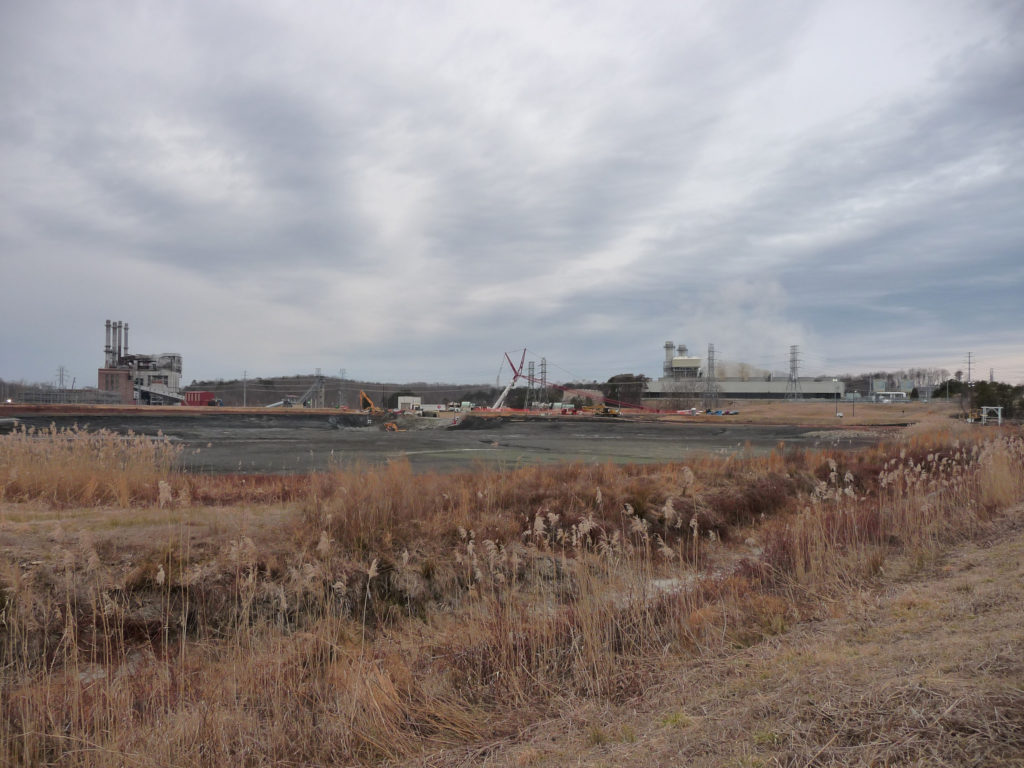“Other Flints”—Environmental Injustice in North Carolina
In February, I met with Brooks Berndt, the UCC’s Minister for Environmental Justice, to discuss a proposal for an eco-justice ministries network within the UCC’s Southern Conference. During our conversation, the tragedy of the Flint, Michigan, water crisis arose, and Berndt made the comment that numerous “other Flints” are occurring across our country at this moment with their own terrible consequences.
His words turned out to be prophetic. On March 17, I testified at a public hearing before the NC Department of Environmental Quality (DEQ) regarding Duke Energy’s Cliffside coal ash ponds. This coal ash is polluting groundwater and the Broad River, which supplies drinking water for numerous municipalities. The water is being poisoned with toxic heavy metals at levels 83 to 690 times the state’s safety standards. These toxic substances are linked to cancer, cardiac disease, liver disease, blood poisoning, and gastrointestinal disorders. Yet DEQ has rated the cleanup of Cliffside coal ash as a “low priority.”
At the hearing, I heard a cattle farmer speak of his fear that the spring near his home had become contaminated—yet his forty to fifty calls to the DEQ have gone unanswered. I heard another man speak of how his “Daddy” had worked for Duke Energy his whole life—a point of family pride—yet now his loved ones can no longer drink, bathe in, or cook with the water in their home. I heard a woman speak of how she saved money to buy a home near the Cliffside plant, where she planned to live until the end of her life and then pass it on to “her babies”—yet I then heard of how she began to lose her teeth, how nothing would grow around her home, and how she finally had to abandon her home because of the toxicity of the water
These three residents are not alone. In the past year, over 400 North Carolina families and their children in a dozen communities have been issued “No Drink” orders by the DEQ. Many in these rural communities are poor and lacking formal education. They are the “least of these.”
We cannot undo the injustice of Flint, Cliffside, or any of the “other Flints” coming to light, but as people of faith, we can stand with those who have been betrayed and ignored. We can work together through the ongoing promise of God’s grace and hope to ensure that these tragedies will not be repeated.
Karen Richardson Dunn is an ordained minister in the UCC’s Southern Conference, a member of First Congregational Church in Asheville, and an environmental activist. She is currently in the process of creating an environmental justice network among the Southern Conference’s congregations.
Related News
Can a Small Church Make a Difference on Environmental Justice? Yes!
American anthropologist Margaret Mead once observed, “Never doubt that a small group of...
Read MoreChurch Launches Community Composting Opportunity
Coral Isles Church in Tavernier, Florida recently kicked off a community composting...
Read MorePostcards for the Planet: Engaging Environmental Voters This Election Season
During this election season, the Green Christians at the Coral Gables United Church of...
Read More
.jpg'] }})
